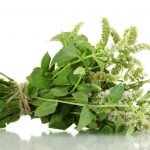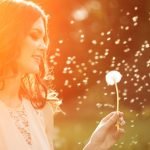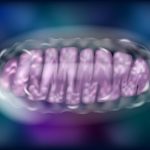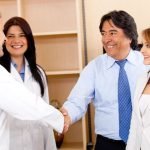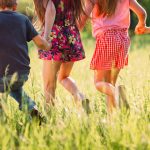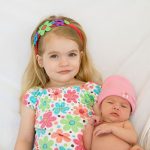Wired for Self-Healing- Part 1
JAMES SENSENIG, ND
LOUISE EDWARDS, ND, LAC
This column is transcribed from a weekly live conversation produced by the Naturopathic Medical Institute (NMI). The goal of NMI is to preserve and promote the principles of naturopathic philosophy through clinical application, in your offices and in your communities, every day. This lightly edited transcript (by Emily Kane, ND) is the first part of a 3-part conversation between Drs Jim Sensenig and Louise Edwards, which took place on April 5, 2017.
Dr Sensenig: Hello to everyone, and thanks for joining us for this conversation on the healing power of nature and this phenomenal power of the body to regain health and resist disease under the right circumstances. Many would call such phenomena miracles. However, naturopathic physicians will witness this occurring on a regular basis in practice.
If you’re not seeing the kind of results that you know are possible, then something is missing. I’m not sure what that is, exactly. Maybe we’ll talk about that a little bit in our conversation.
My guest today is Dr Louise Edwards. I first met her almost exactly 32 years ago when I gathered some of my colleagues to start a discussion about forming a new national organization. That was in 1985, when the existing national association for naturopathic medicine was the National Association for Naturopathic Physicians – the NANP. The NANP had fallen on rough times and had declared bankruptcy.
Before the NANP, the extant national organization was the American Naturopathic Association. But that had also fallen on hard times within a decade or so after the death of Dr Benedict Lust. We had 2 national organizations, neither of which was functional at the time. In personal meetings with the leadership of both organizations, I was advised to start from scratch to avoid whatever skeletons in the closet might come forth.
Therefore, I called together some of my friends and colleagues to begin a new national organization, to be called The American Association of Naturopathic Physicians. The AANP’s first organizational meeting was in classroom 102 of the National College of Naturopathic Medicine, in Portland, which was on Market Street in those days. When we arrived on that Friday afternoon to begin our weekend deliberations on how to proceed, 2 young women walked right up to me. One of them was Louise Edwards, and the other was her classmate Lori Kimata. Louise Edwards introduced herself and said, “We’re here to help.”
They sat through that first meeting and acted as “note-keepers and secretaries.” That was some 32 years ago, and she’s been on board ever since.
At that time, Dr Edwards was a first-year student. She graduated from National College in 1988. In 1989 she graduated from The Oregon College of Oriental Medicine. She subsequently had a full-time practice in Durango, Colorado, for many years, up to 2005. She then decided that she wanted to focus on writing and teaching. Since 2000, she has been an adjunct faculty member at the National University of Health Sciences, in Chicago, and at Bastyr University. She teaches Philosophy, Case Analysis, Case Management, Introduction to Counseling, and Oriental Medicine. She supervises in the clinic at National University, and she has frequently been on the circuit with the Gathering and the Revitalization and Revival meetings. She’s also a founding member of the AANP. She walked in on the first day, before we were even incorporated, served on the Board for 3 years, and was in the House of Delegates for 15 years. In 2011, she received the AANP’s Vis Award.
Dr Edwards, thank you so much for taking time to visit with us today.
Dr Edwards: I am absolutely delighted to be here! I want to express my immense gratitude to Dr Camp and Dr Sensenig, and everyone else who has facilitated the start of this absolutely vital conversation!
Maintaining Our Roots
Dr Sensenig: One of the motivating factors for this work is to maintain the positive, optimistic, emotionally vibrant aspects of our profession. What I hope we’re doing is gathering a community of people who are excited about what they do and why they do it because they’re seeing so many incredible and positive changes in their patients.
On the more practical and urgent side, many of us are concerned that the tools, knowledge, and the philosophical grounding – that is so necessary to accomplish our good work – are being lost or abandoned for all kinds of reasons: pressures, and changes in our society and educational system. We’re losing touch with our roots, and this has a serious impact.
It’s not just the tools; it’s also the framework in which to use them. Without that, we can’t get the results we want for our patients. That makes it more difficult for graduates to succeed in practice. Of course, they want to focus on helping others rather than focus on staying in business.
I’m hoping to touch on the philosophical part of naturopathy today. In the conventional system of medicine, pathological, physiological changes are seen in their own right as “the disease.” In contrast to that, we have a model in which we are never really trying to squeeze a set of symptoms into a defined “disease entity.” A migraine is never just a migraine; hypertension is never just hypertension; that left hip pain is not just coming from your left hip. We see symptoms as the changes that are a necessary and intelligent adaptation of a living system as it continues to try to live under the pressures of current circumstances. In other words, these are understandable adaptations to the environment.
I was intrigued by a young man that I saw yesterday for the first time. He is 13 years old and being raised by his grandparents, since both of his parents are incapable of raising him due to drug abuse. His complaints were ADD and impulsivity. And, in his own words, he can sometimes become violent, including beating his own siblings.
When I was doing the intake, I asked what the boy was eating. The grandmother told me his breakfast consists of peanut butter… (and I’m waiting for the rest of the sentence). I said, “Peanut butter with what?” She said, “No, just peanut butter.”
I looked at him and asked him if he ate anything with the peanut butter. He said no. The grandmother said that sometimes he’ll have what they call peanut biscotti butter. That’s where she crumbles up a biscotti and mixes it in the peanut butter. He’ll sometimes eat cinnamon toast, if she takes the crust off of it, but that’s rare. It’s mostly peanut butter or the peanut biscotti butter. That is his breakfast every day!
He eats no fruits or vegetables for lunch at school. He said he hates them because the texture is just “too yucky.” He doesn’t even like the way they feel when he touches them. So he will eat a school lunch, but the only thing he’ll eat is pizza or fish. He throws away the bread on the fish sandwich because he doesn’t like the fact that it covers up the taste of the fish.
Dinner is mac & cheese. That’s what this boy lives on. And they wonder why he’s having these issues. Isn’t it obvious that he can’t function properly, can’t think clearly, can’t behave himself, and can’t sit still if he’s living on wheat and dairy and peanut butter and nothing else? As I said to the grandmother, “You wonder why his behavior is aberrant?”
This young man is on 6 different medications prescribed by his pediatrician to try to control his behavior. The first prescription he got was risperidone, I think. Then he got something else for the side effects of the first drug, and then something else for those side effects, etc. Now that they’re onto the sixth drug, which is trying to manage the side effects of drug number 5, which is trying to manage the side effects of drug number 4, etc, etc. Grandma has finally had it because his behavior is not changing! Talk about adaptation!
Dr Edwards, getting back to our conversation about building a community of like-minded physicians, what are your thoughts?
Self-Healing is Innate
Dr Edwards: What occurs to me in all of this is that you and I had the benefit of learning from doctors who had been practicing for decades. They not only taught us how to do it, but also demonstrated through their practices how exquisite and efficacious our medicine is. I know that as these older doctors died off, and we – their students – went into practice, there was a period of time when there were not as many doctors available to educate the incoming doctors and demonstrate our medicine. So, our medicine has been lost, to a certain extent.
I want to circle back to the very beginning where you talked about a colleague proclaiming how miraculous our medicine is. That has been my experience. I practice based on the principles and philosophies that I was taught by Dr Jared Zeff, and by you, and by Dr Harold Dick, Dr Bastyr, and Dr Bill Mitchell, all of whom owned the medicine.
I want to talk about the word “philosophy” for just a moment. I think sometimes we get a little bit lost in this idea that we’re grounded in philosophy. This seems like a somewhat tame word to me. Our medicine is actually solidly grounded in science, and our philosophy is also rooted in science. I can say that science starts with evolutionary biology over the 4 billion years of the evolution of organisms on this planet. All living organisms evolved, selecting for traits that allowed them not only to survive, but also to thrive in the conditions on this planet. Part of thriving on this planet was the ability to be self-healing. During most of those 4 billion years ago, there weren’t allopaths or naturopaths. There wasn’t anybody other than organisms evolving and healing themselves when there were problems or injuries.
Throughout the 4 billion years of evolution, all living organisms have continued to develop a capacity for self-healing.
Dr Sensenig: That seems like enough time to give it up or get it right, correct?
Dr Edwards: The simple proof is that we’ve all survived. Here we come back to the science, which can now start to explain our ability to heal. Our ability to be healthy is predicated simply upon living in harmony with the conditions and the laws of the environment in which we evolved. We didn’t evolve to eat just peanut butter and biscotti.
Dr Sensenig: Because we have gotten so far away from understanding what normal is, examples of self-healing look like miracles to us now. Because we’re so off-base, we’re so sick, we’re so compromised, we’re so adaptive, when somebody gets well and they are healthy compared to what’s going on in our culture, that’s called a miracle. That’s actually pretty sad, when you think about it this way.
Dr Edwards: It is sad that we’ve gotten so distanced from our fundamental understanding of this simple concept. We talk about the determinants of health; they start with the essentials of air, water, and food. It expands from there to the culture and society and our state of consciousness.
The miracle is that when we correct the disturbances in those underlying determinants, we do return to health. The miracle is that we have evolved that capacity. What is this innate and ordered intelligence – which we often call the healing power of nature – that has allowed us to evolve into self-healing organisms? When we create the conditions for health by addressing the underlying disturbances, self-healing is the norm. When we align with the natural conditions for health, we have a guaranteed return to health. That’s actually not miraculous; that is a natural phenomenon. It’s simple: If you create the conditions for health, or correct the “terrain,” as we used to call it, then you can bank on a return to health.
This column, based on the Vital Conversations of the Naturopathic Medicine Institute, will continue in next month’s NDNR.
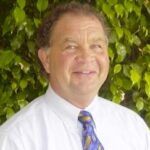
James Sensenig, ND was a 1978 graduate of NCNM in Portland, OR. For over 40 years he maintained an eclectic practice in Hamden, CT. Over the years, Dr Sensenig held prominent positions in the various naturopathic colleges and the AANP. A champion of classical naturopathic medicine, Dr Sensenig received an Honorary Doctor of Naturopathic Philosophy degree from CCNM, and received numerous awards for his dedication to teaching the principles of naturopathic medicine.
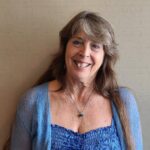
Louise Edwards, ND, LAc, graduated from National College of Naturopathic Medicine in 1988, and from the Oregon College of Oriental Medicine in 1989. She had a full-time private practice in Durango, CO, until 2005, when she chose to primarily focus on teaching and writing. She is an adjunct faculty member at National University of Health Sciences and Bastyr University and is a frequent presenter at conferences. Dr Edwards in a founding member of the American Association of Naturopathic Physicians, has served on the AANP board, and served for 15 years in the House of Delegates. She received the AANP’s “Vis Award” in 2011.


